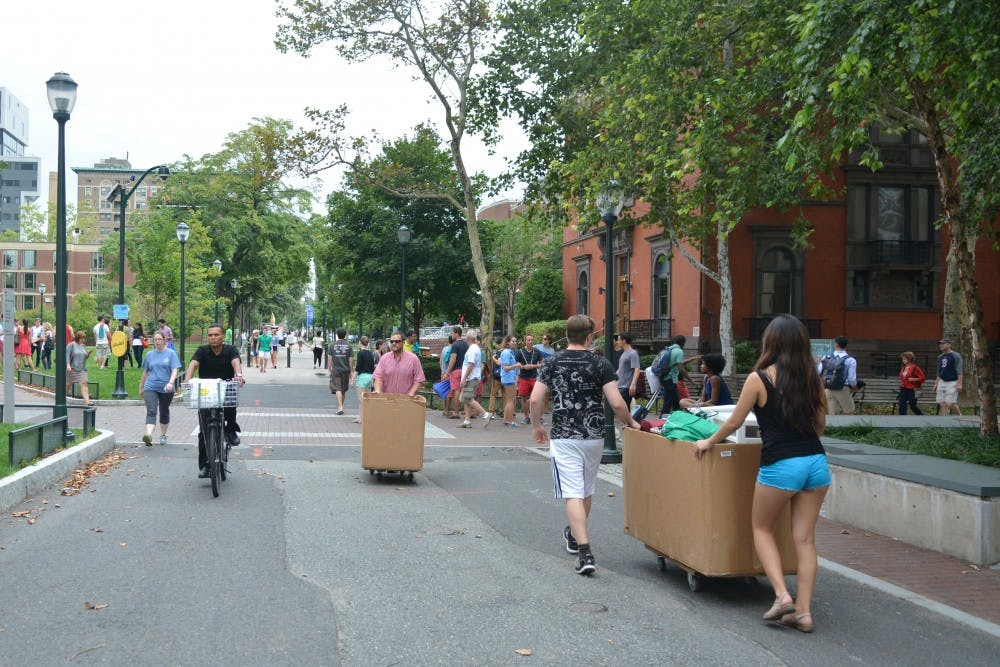
File Photo
I didn’t know you can print at Van Pelt until three weeks ago. I didn’t know Gourmet Grocer accepted dining dollars until halfway through the first semester of my first year. There are a lot of things I didn’t know about Penn until I asked my pre–major advisor and trusted professors for guidance.
While all of these things seem innocuous now, during my first year, I was scared at the prospect of asking about them. I thought it would make me look stupid. I spent so much time worried that people would think I was dumb for asking questions that I was actually daft to many of the things Penn had to offer. Since then, I’ve learned two important lessons: 1) Literally just ask. Most upperclassmen I’ve run into at Penn are honestly always willing to answer your question when they know you have one. And 2) Your peer advisor should offer information during your first semester so you don’t feel stupid for needing to ask. My peer advisor was unfortunately not the most helpful person on campus when I first came here, which is why I applied to be one for the upcoming school year.
I was lucky— I came into college knowing I wanted to major in English. Many of my peers, however, still don’t know what they want to study. Peer advisors can be invaluable in providing insight into this difficult decision. Additionally, there’s a program called “MAPS,” which “allows first-year and sophomore students to contact declared majors and learn about the major from a student’s perspective.” This was a tool I didn’t realize I had at my disposal. Penn is full of amazing resources, but sometimes incoming students don’t know where to look for them. Peer advisors are responsible for supplying this guidance. I did not personally find the guidance I desperately wanted, and having that compass–like person would have been very helpful. My peer-advisor story is not a unique one, and many people don’t feel as if their peer advisors have done all they can to help them. But I must ask myself if I did all I could to ask for help.
Peer advisors can be an invaluable tool to first-year students — one that should be capitalized on all year long and not just during NSO. Asking for the support you need is just as important as extending it, however. I think it is quite easy to put all the blame on peer advisors when talking about how the advising program wasn't as helpful as students expected it to be. I didn’t rely on my peer advisor in the slightest, though retrospectively, I wish I had the courage to reach out. Peer advisors, seasoned in many aspects of Penn, such as course registration and simple campus directions, need to make themselves available and excited to answer any question that comes their way. At the same time, first–years need to reach out and voice their concerns, ask their questions, and not be afraid to utilize the system they’ve been filtered into.
On a certain level, I think I expected my peer advisor to read my mind. I thought she would reach out to me, answer all the questions burning the back of my throat, and everything would work itself out. This is a nice fantasy, but wholly unrealistic. As I prepare to become a peer advisor, I want to be open, honest, and available for the first–years I’m assigned. I cannot, however how hard I try, read their minds. We must find the correct balance between give and take, counsel and query.
It all comes down to the basic principle of asking. I’ve never had anyone at Penn tell me they couldn’t help me when I’ve expressed a need for help. Expressing that need for help is an important step in the process, though. The peer–advising program can ease the friction that sparks off transitioning from high school to college, but only when effort is put in from both first–years and their assigned upperclassmen. I struggled my first semester, but I struggled in silence. I urge every incoming student not to do the same and simply ask.

SOPHIA DUROSE is a College sophomore from Orlando, Fla. studying English. Her email address is sdurose@sas.upenn.edu
The Daily Pennsylvanian is an independent, student-run newspaper. Please consider making a donation to support the coverage that shapes the University. Your generosity ensures a future of strong journalism at Penn.
Donate







